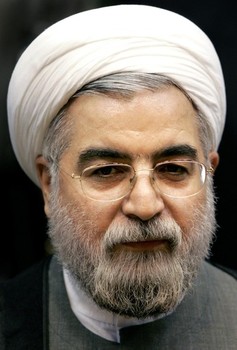Iran hails “excellent” bilateral ties with Sudan
February 21, 2014 (KHARTOUM) – The Iranian president Hassan Rouhani, has said his country’s strategic policy is to strengthen ties with African countries pointing that Sudan has special status in this regard.

He pointed to the need for strengthening bilateral relations; stressing Iran’s cooperation with African countries could enhance stability in the black continent.
Sudan’s parliamentary speaker for his part praised Iran’s moderate foreign policy, pointing it benefits both Iran and the Islamic world.
He further expressed Sudan’s readiness to harness its resources and facilities to develop bilateral ties.
Last November, Sudan’s former vice president Al-Hag Adam Youssef said his country’s relations with Iran are based on common interests and not intended to threaten the interests of the Arab Gulf states.
The mostly Sunni Muslim Arab Gulf states are wary of Iranian influence in the Middle East, fearing the Shiite-led country is seeking regional dominance that will stir sectarian tensions. The Syrian conflict has also increased the divide between the two sides, with Arab monarchies supporting the rebels and Iran backing the Al-Assad regime.
The Sudanese government has allowed Iranian warships to dock in Port Sudan three times in the past year, but denied suggestions of a military alliance between the two countries.
The Saudi pro-government Al-Riyadh newspaper blasted Khartoum over its decision to allow Iranian warships to dock, saying Sudanese president Omer Hassan al-Bashir’s regime is now at odds with most Arab countries and is struggling to attract Arab or foreign investors.
Last August, Riyadh blocked a plane carrying the Sudanese president from entering its airspace en route to Iran to attend the inauguration ceremony of the then new president Rouhani.
Bashir, who performed the Muslim Hajj (pilgrimage) last year, did not meet with King Abdullah bin Abdulaziz during the visit, despite the Saudi monarch holding separate talks with the Turkish and Pakistani presidents who also performed Hajj this year.
(ST)
